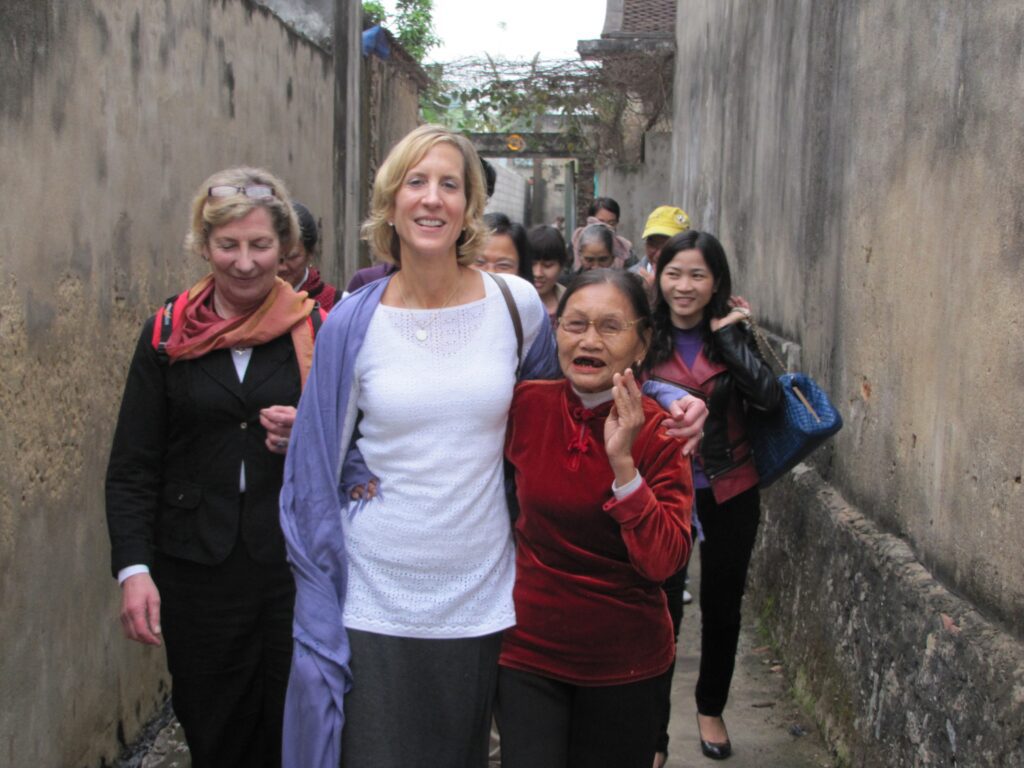
While I am new to this role, I’m not new to HelpAge USA. As a board member of HelpAge International in London for eight years, my eyes were opened to the people and stories behind aging in the world’s poorest communities. I met older women like Chela, who had started a micro-business making glassware while living in a garbage dump in Lima, Peru. Older men were desperate to learn new food harvesting methods to combat climate change in their isolated area of the Andes Mountains. One older woman I met in Tanzania was raising 8 grandchildren. After her husband died, she almost gave up the small land on which they lived when her brother-in-law demanded it – despite the fact it was legally hers. In all these cases and thousands more, HelpAge staff were working tirelessly to advocate on behalf of older people and provide skills or training. I saw the difference HelpAge made in their lives. I can still feel this Vietnamese woman’s excitement talking about how a HelpAge Intergenerational Self-Help Club in her village funded desperately needed repairs to her home.
Cultural traditions are changing. The belief that older people in other countries are taken care of by their families, even revered, is no longer accurate. Many younger people move to cities for jobs while older stay behind in rural villages, with few opportunities to make money to survive. They lack access to appropriate health services. And in our world in which the new is favored over the old, older people’s value and contributions can be easily overlooked.
We need to shift how we think about older people in the world’s poorest communities. By 2050, the number of people 60+ will double from 1 to 2 billion and most will live in poorer countries. But little is being done by societies to adapt to this demographic change. Hardly any funding goes to help older people maintain their financial independence. International development agencies like USAID cap health studies at the age of 49, meaning older people are not even included in surveys that determine program funding.
Motivated by this oversight and profoundly moved by my experiences, I founded HelpAge USA in 2009 to shine a light on our world’s rapidly growing older population. Much attention is focused on children and young adults in lower-income countries and rightly so. But COVID-19 has pulled back the curtain on the disparities older people face. If you believe the measure of a society is how it treats its most vulnerable, please join us in our movement to advance the wellbeing and inclusion of older people around the world.
